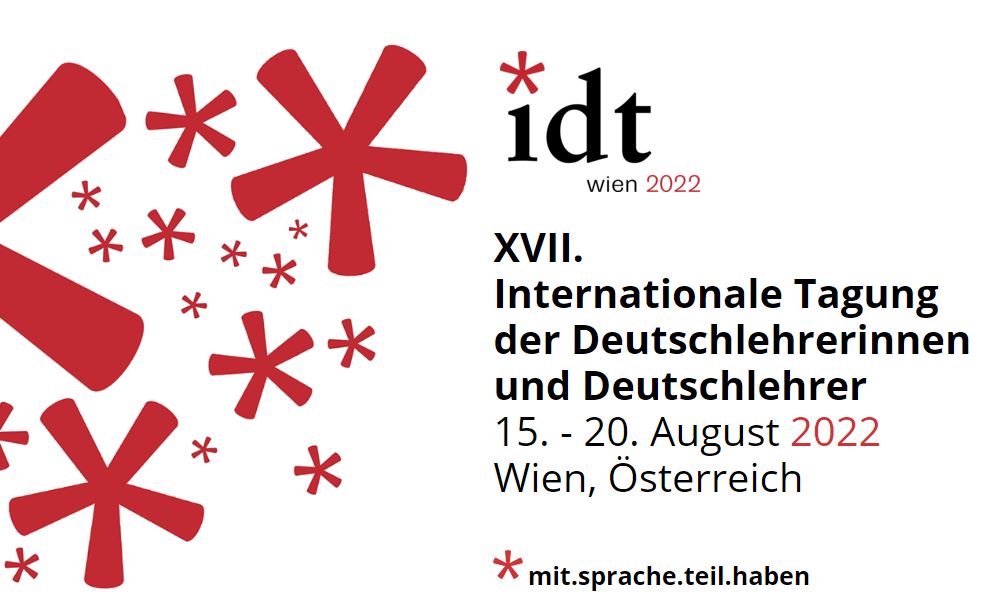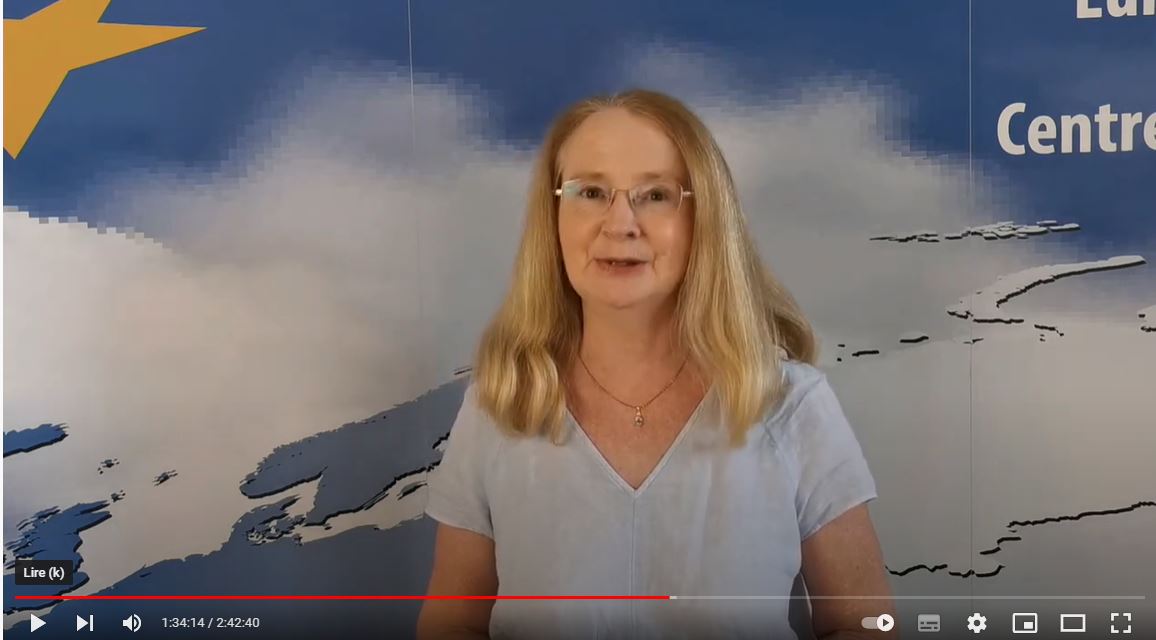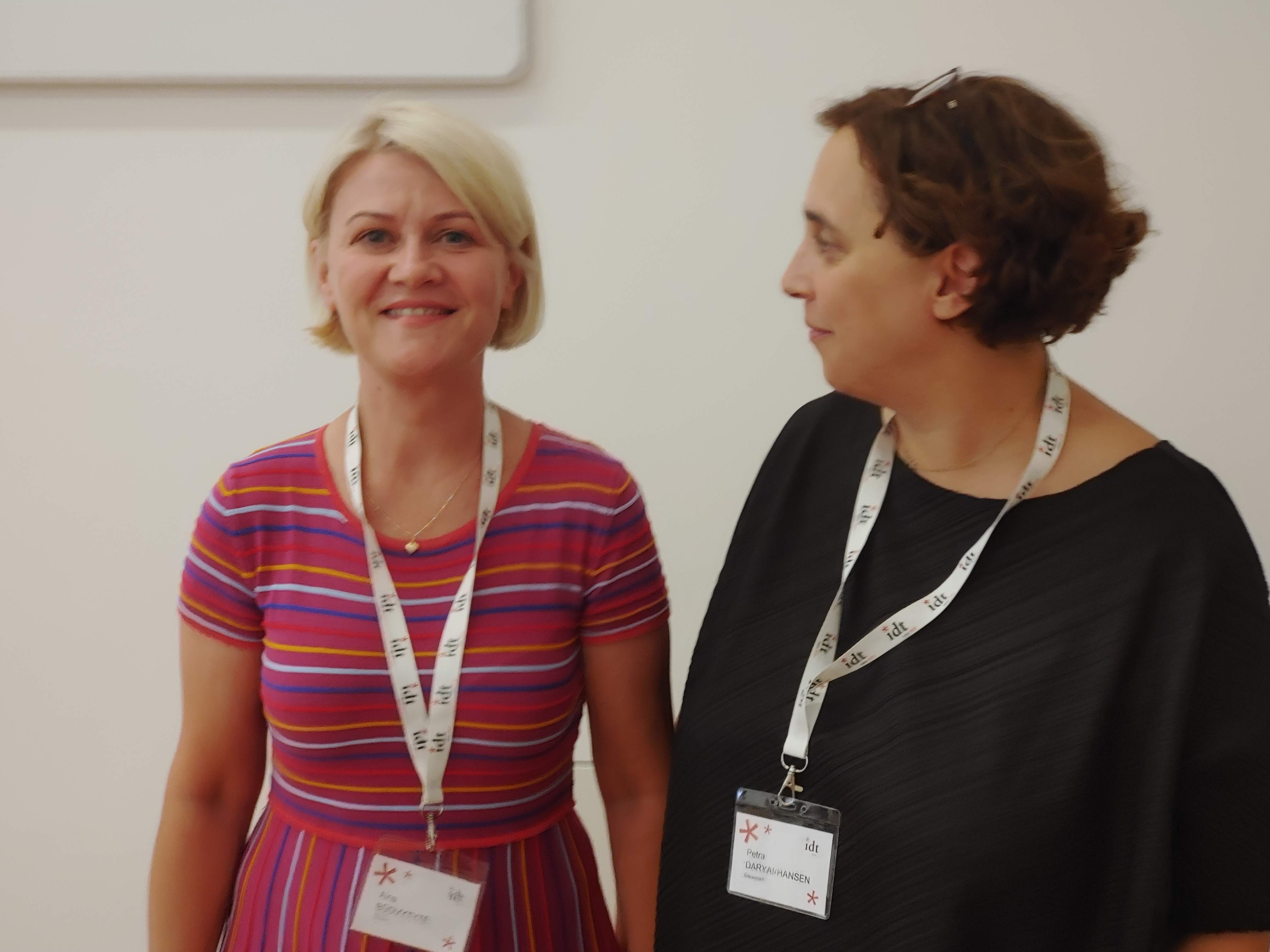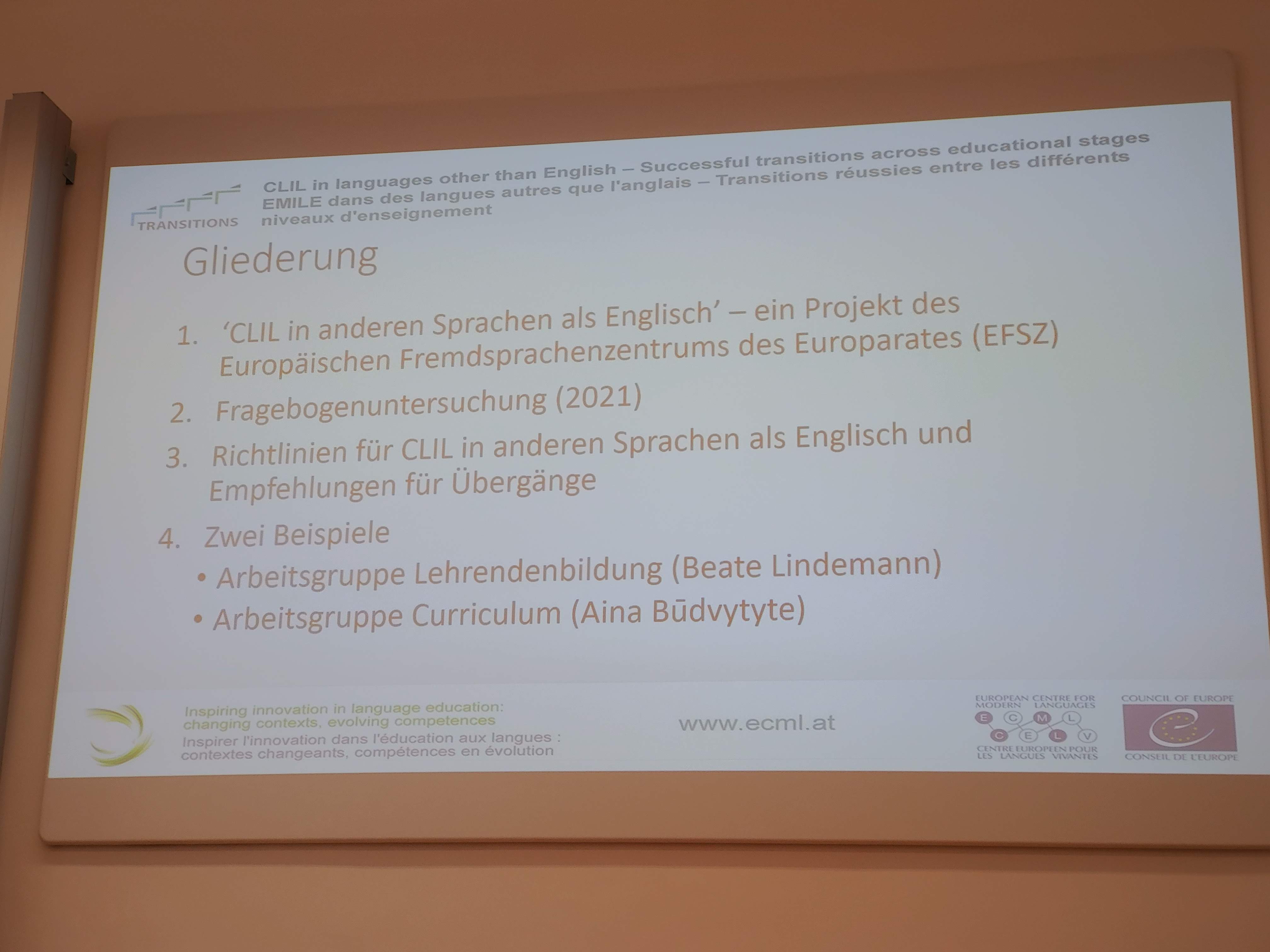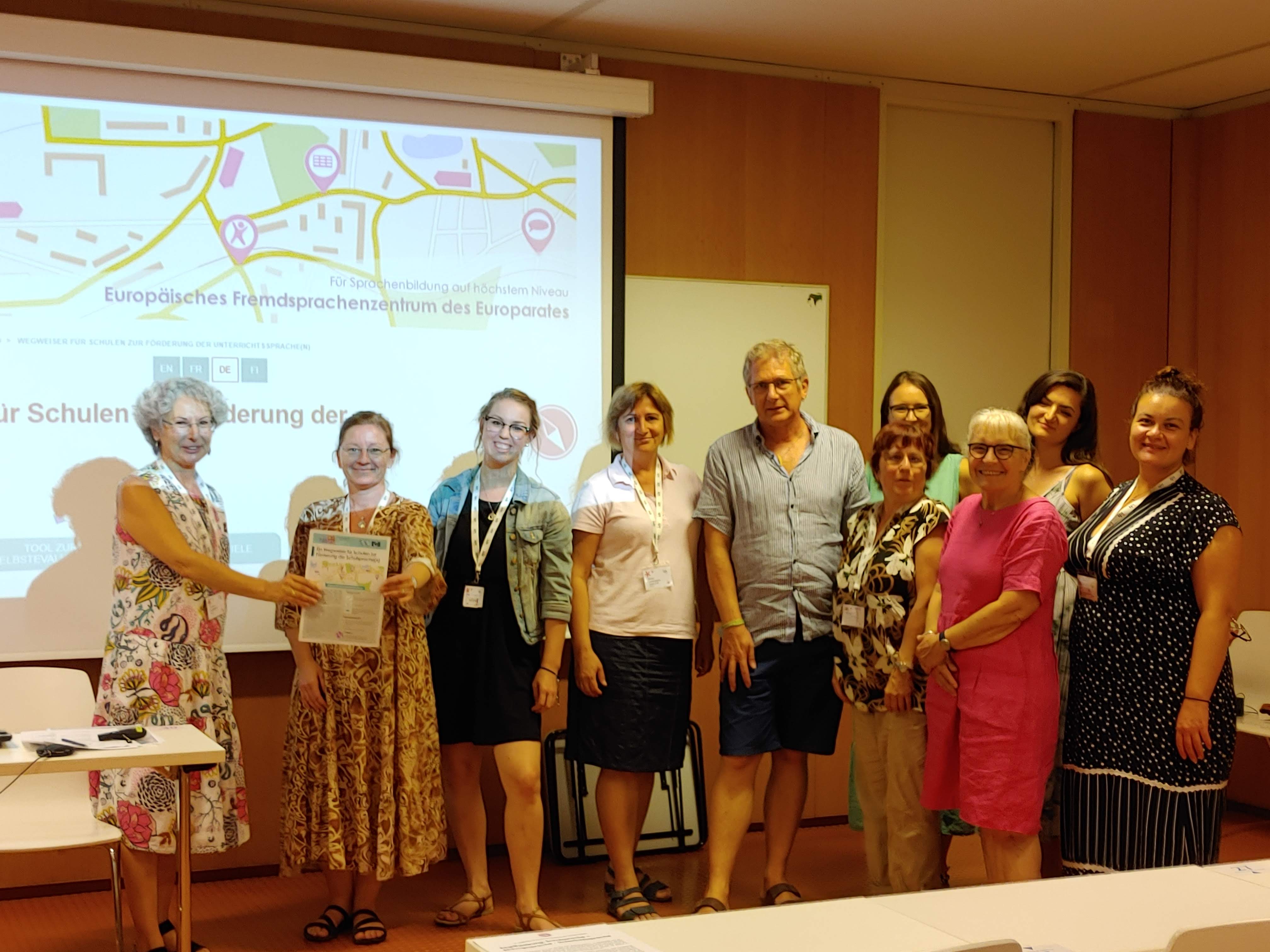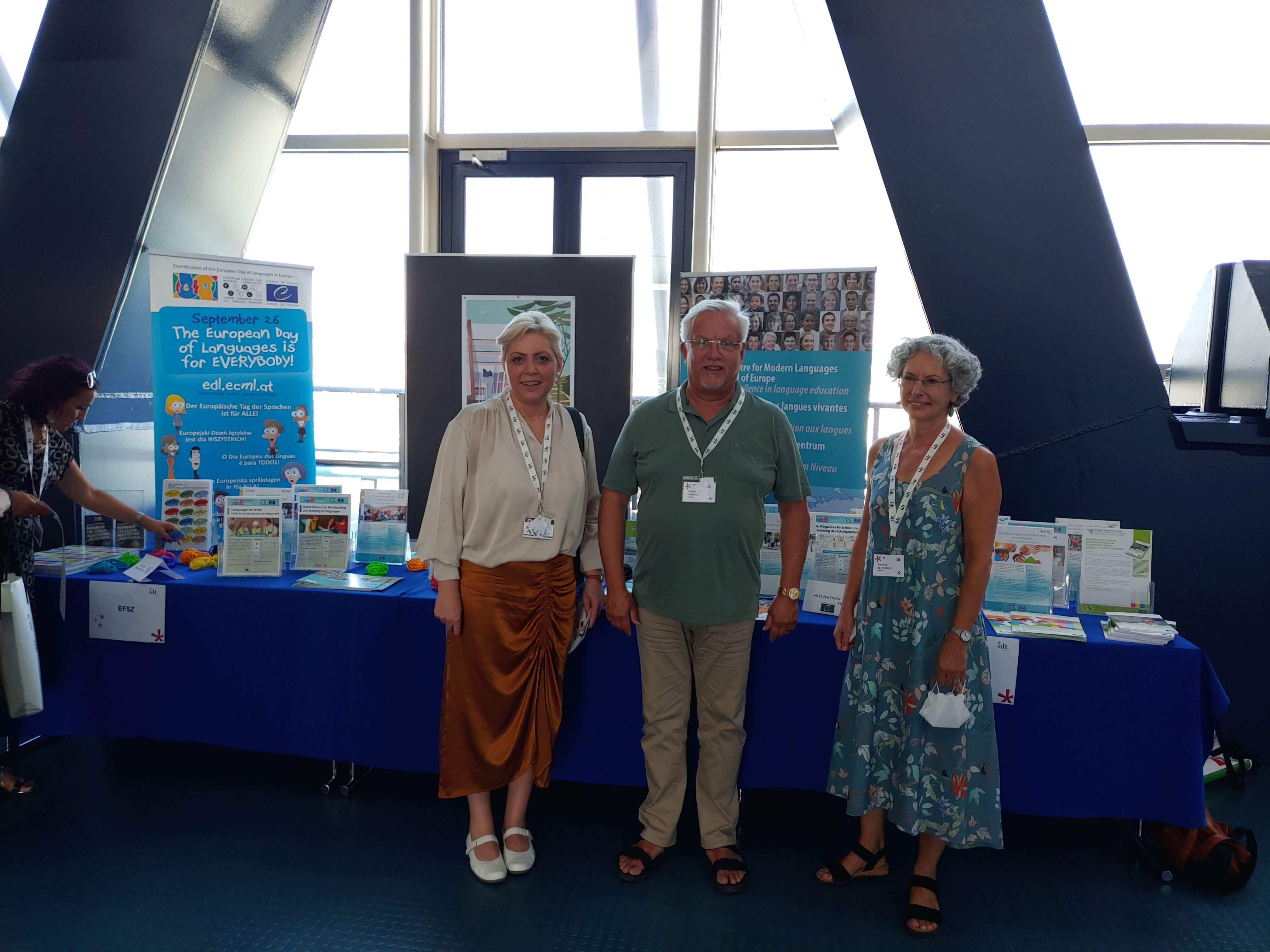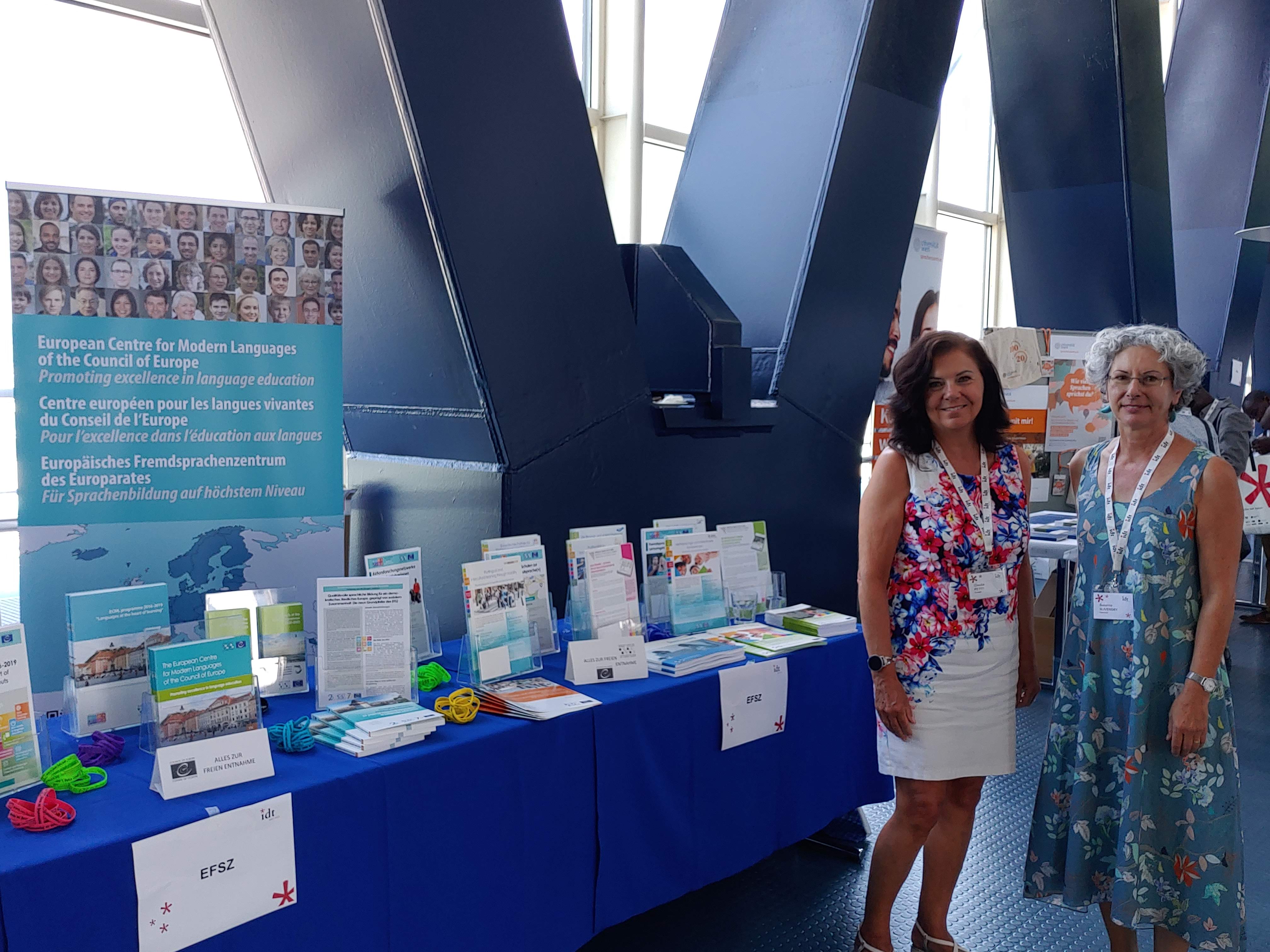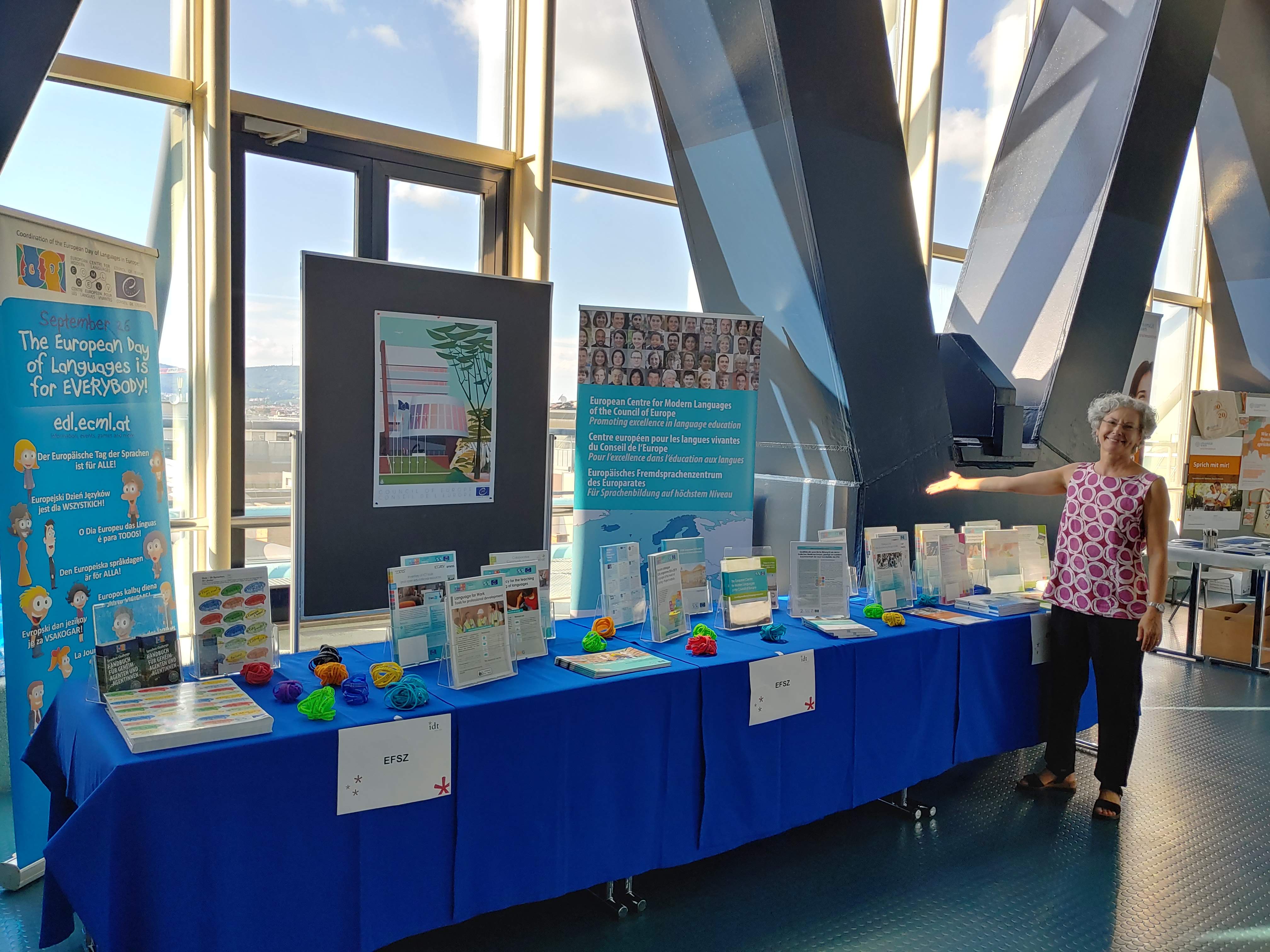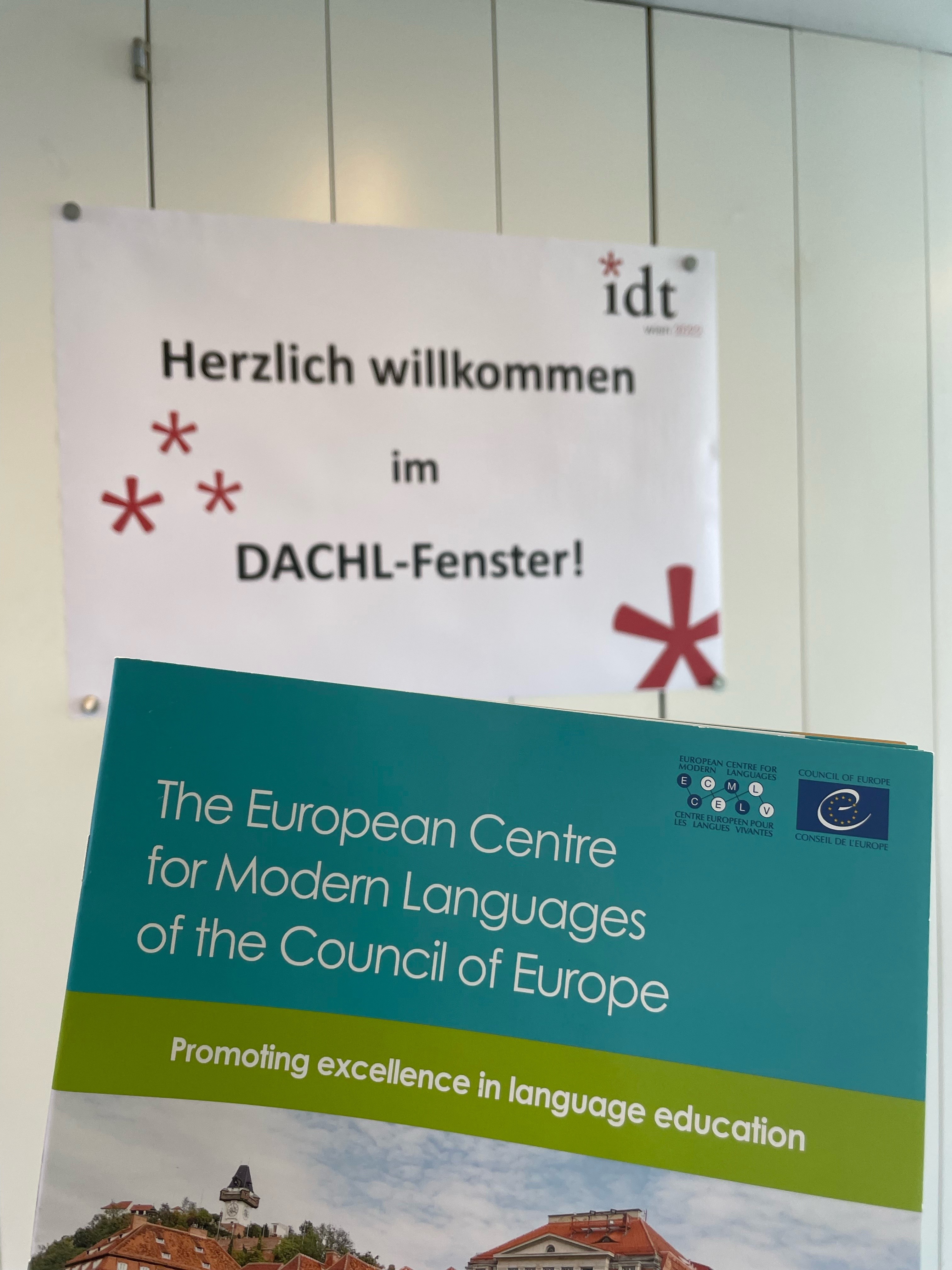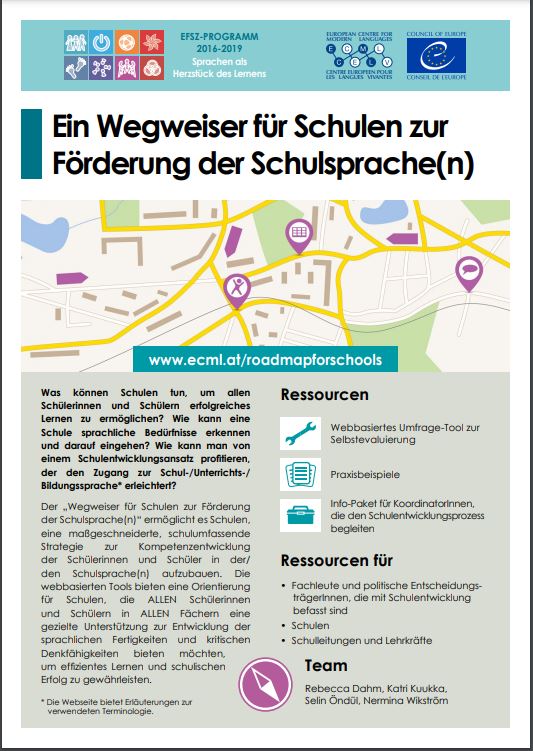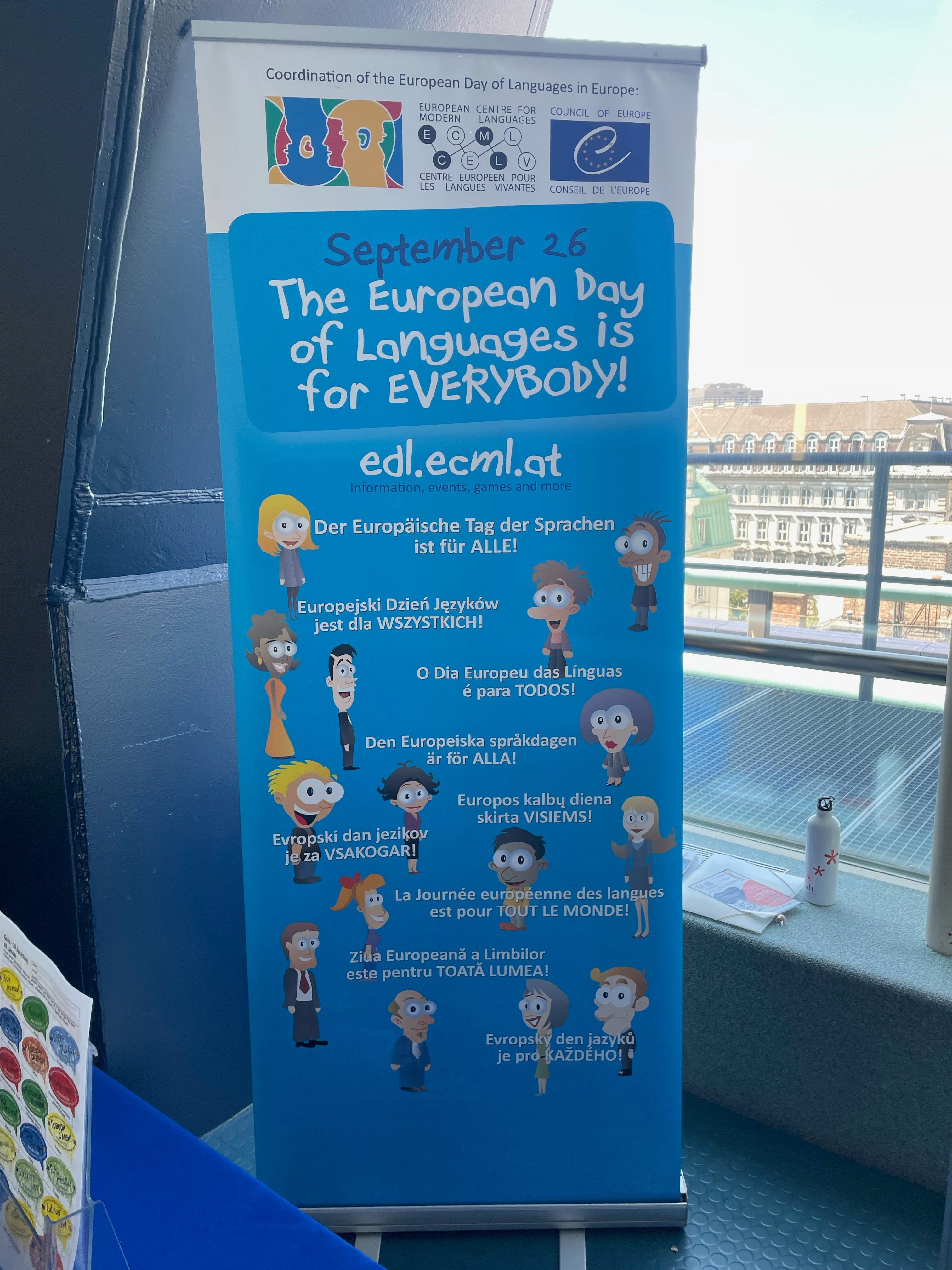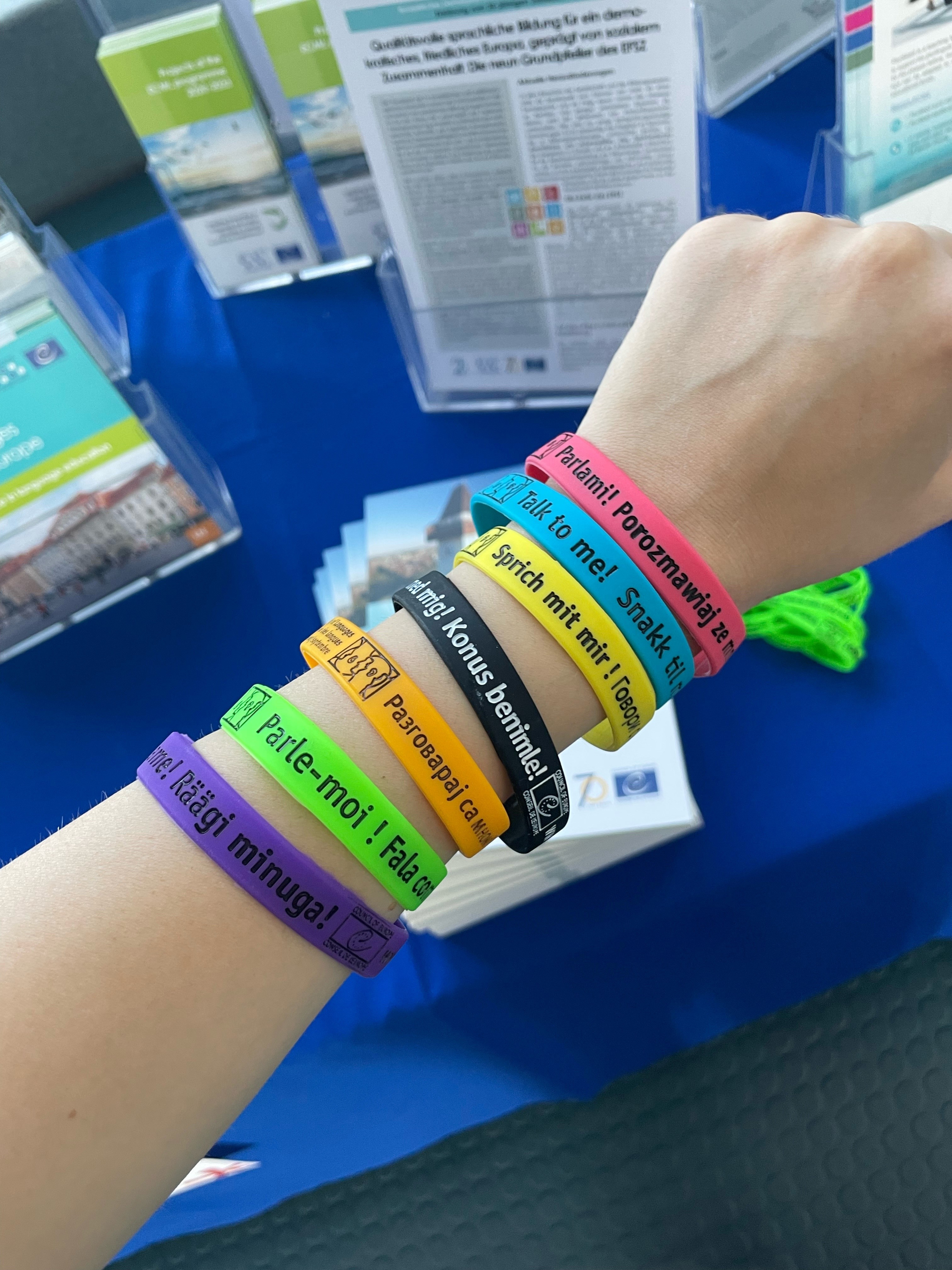From 15-20 August 2022, 2 800 participants from 110 countries met at the University of Vienna for the conference entitled “mit.sprache.teil.haben”. The host associations ÖDaF (Austrian Association for German as a Foreign and Second Language) and IDV (International Association of Teachers of German), in close cooperation with the Goethe-Institut, offered a rich programme to stimulate discussion on both academic and practical aspects of teaching and learning German.
In her video greeting at the opening of the IDT, the ECML director Sarah Breslin responded to the conference motto on the role of languages for active participation in society – (mit.sprache.teil.haben) – by emphasising the vital role of plurilingualism and intercultural competences for a democratic culture in Europe.
The initiatives and resources offered by the ECML to teachers and other language professionals were presented at a well-attended ECML information stand. On the opening day itself, two members of the ECML Governing Board were welcomed there: Claudia Petiti from Switzerland and Steinar Nybøle from Norway.
Two ECML events were offered as part of the conference programme: a presentation of an ECML project: “CLIL in German: Transitions between educational levels” offered by Petra Daryai-Hansen, Beate Lindemann and Aina Būdvytytė (see the report of this team below), and a workshop on the ECML resource “A roadmap for schools to support the language(s) of schooling”. Participants highlighted the practical relevance and innovative potential of the presented ECML approaches for innovative language education in their feedback.
The ECML was also present at a book presentation organised by the Vienna Chamber of Labour. The new publication “Fokus Mehrsprachigkeit. 14 Thesen zu Sprache und Sprachenpolitik. Beiträge aus Österreich und Europa” (Focus Multilingualism. 14 theses on language and language policy. Contributions from Austria and Europe) exemplifies how multilingualism can strengthen the sustainability of a society. It includes an article by Susanna Slivensky (ECML) entitled “Mobilität und Sprachenlernen für Demokratie in Europa. Perspektiven des Europäischen Fremdsprachenzentrums des Europarates” (Mobility and Language Learning for Democracy in Europe. Perspectives of the European Centre for Foreign Languages of the Council of Europe). This is complemented by a contribution from the perspective of the European Commission/Kristina Cunningham and Claudia Kropf: “Vom Binnenmarkt zum Europäischen Bildungsraum: Mehrsprachigkeit und Mobilität als Motor für Integration, Wachstum und Beschäftigung in der Europäischen Union” (From the Single Market to the European Education Area: Multilingualism and Mobility as an Engine for Integration, Growth and Employment in the European Union).
Further encouraging language policy priorities were set at the IDT closing event, with a plenary lecture by Hans-Jürgen Krumm on the topic of “Sprachengerechtigkeit” (language justice) and the “Wiener Thesen zur Sprachenpolitik – 11+1 Forderungen zur Stärkung gesellschaftlicher Teilhabe” (Vienna Theses on Language Policy – 11+1 Demands for Strengthening Social Participation). Set against the backdrop of the new recommendation of the Council of Europe's Committee of Ministers on the importance of plurilingual and intercultural education, these are welcome synergies to strengthen innovation in language education.
“CLIL in languages other than English – Successful transitions between educational stages”: report of the ECML team
The ECML project “CLIL in languages other than English – Successful transitions between educational stages” was presented at the IDT in Vienna on Thursday, 18 August 2022. First, main results of a comprehensive questionnaire survey, which was answered by 38 experts from 29 countries, were put forward. The results show that CLIL is only found to a very limited extent in languages other than English in the European countries. Furthermore, CLIL is almost never linked to plurilingual education and transitions between levels of education are given very little attention. Then, some key results from two of the eight working groups of the project were presented. On the one hand, an example from the working group for curricula: the renewed Lithuanian curriculum for DaF, taking transitions between educational levels in CLILiG into account. On the other hand, some main points of the working group for teacher education were presented, pointing out that a further development of CLILiG initiatives in teacher education is necessary, that CLIL LOTE should be integrated into teacher education for all school subjects and that an intensive collaboration between teachers and teacher students for non-language and language subjects at different educational levels is necessary.
